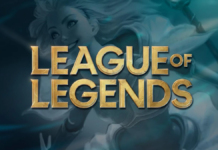At the beginning of this month, the problematics of loot boxes in MMO games have made headlines yet again. This time, the British Department for Digital, Culture, Media & Sport published a report where loot boxes are depicted as “features that are highly similar to conventional gambling products”, with mentions of games such as RuneSpace, World of Warcraft and even Overwatch. Now, with attention from several governments, is the conundrum of loot boxes finally at a stage where resolution is imminent? Or perhaps it will continue to inhabit a legal gray area? Let’s take a look at the problem and its history.
The Role of Loot Boxes: A Duality Between Developer and Consumer
The practice of including randomized rewards, chests, boxes and packages in MMO games is a long-standing “tradition” in the gaming industry. However, despite its almost two decades of existence, experts have failed to realize that this alleged gambling-like activity can be seen from two diametrically opposite perspectives.
On one side, you have developers, who include loot boxes and randomized boosts/items/skins in order to entice the player into spending more time in-game. This is in hopes that the player will keep racking up hours so that he can “win big”. On the other hand, you have players, who often abandon endgame content and conventional objectives just so that they could win an uncommon item which would set them apart from other players.
Why Is This Practice a Peril to Players?
Historically speaking, most of the controversy around gambling revolves around money. Various mathematicians have published papers on “casino math” and how the odds are stacked against the player. Video games are different, but only for how they are perceived by the law. When it comes to conventional games such as roulette or slot machines, there are no gray areas whatsoever. However, with MMO and MMORPG games adopting gambling-like practices, the line between fun and gambling becomes blurred.
This leads us to two main problems. Critics of such additions have pointed out that the worst part is that loot boxes turn the MMO into a game of chance, not a game of skill. ‘A player’s success should be directly proportional to his/her in-game skill level’, most tend to say. Loot boxes, as controversial as they are, can indeed give the player “unfair boosts”.
The second facet of this problematic is how it affects minors. While most games don’t require you to make real-money purchases to get loot boxes, they can “hoax” the player into spending way too much time chasing an award of their desire. Children, of course, are more easily swayed by such features, rendering them vulnerable to the malicious practices of so-called “skin gambling”.
Cosmetic Enhancements: Why Are They Even More Dangerous
Touching on the subject of “skins”, developers have shrewdly managed to avoid criticism from their core fanbase. Surprisingly, most fans deem loot boxes as something completely acceptable if they don’t offer performance enhancements. Egalitarianism is important to seasoned gamers, but it becomes just a mirage created by the newly-created elitist regime of exclusive skins, clothing items and cosmetic changes.
We all remember the days of running a dungeon in World of Warcraft several hundreds of times, just to get a mount which has a 0.3% chance of dropping, right? This, according to some, resulted in practices where Epic Games and other companies are openly, without even a hint of shame, selling skins for real money. The creators of such items have argued that the stimulus itself is harmless because it doesn’t create an in-game imbalance.
However, the appearance of elitism and players incessantly investing into cosmetic improvements has tipped the scales when it comes to law enforcement agencies tolerating these trends. Where do we go from now?
Will Loot Boxes Continue to Be a Hot Topic?
In 2010, Greece was dangerously close to putting a ban on video games as a whole due to the presence of loot boxes and similar gambling-like elements. In the future, we may see more governments try to crack down on developers inserting mini-contests and lotteries into games, but will anyone be able to stop them?
As long as game creators omit “paid entry” from in-game contests and randomized awards, law enforcement will have their hands effectively tied. Concurrently, eSports gambling has punched the ticket that eSports needed to enter the echelon of traditional sports. Read more here and get acquainted with the latest trends in betting on competitive games.




